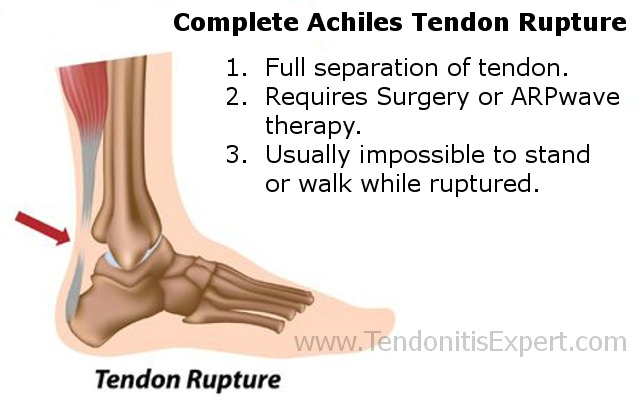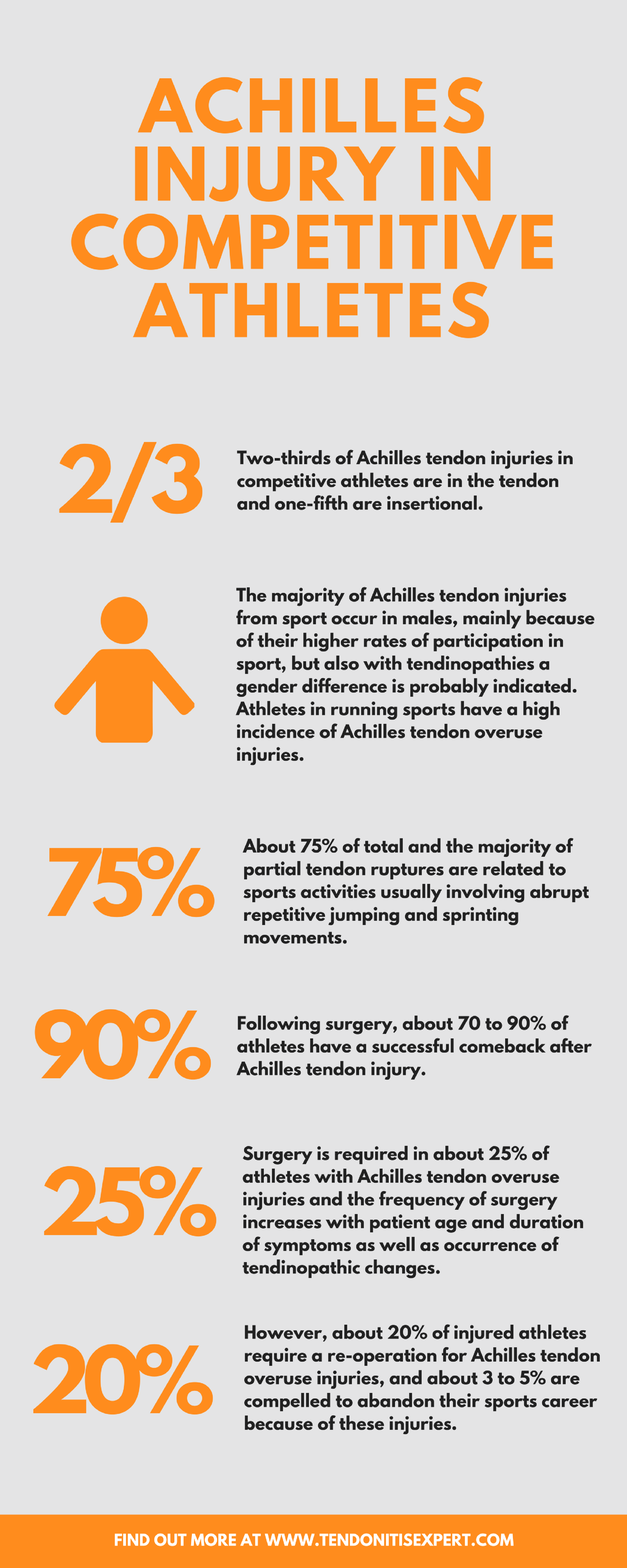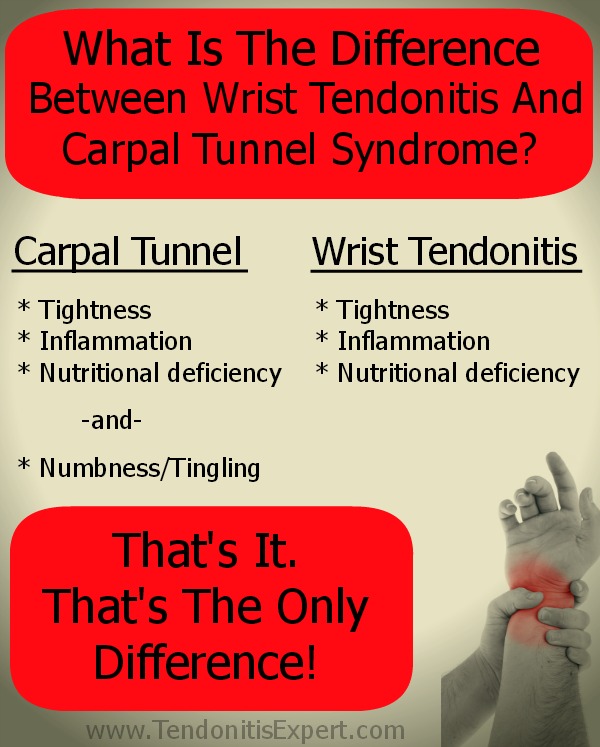Achilles Tendon Rupture
Having an Achilles Tendon Rupture is no joke. It's not like spraining an ankle or tweaking your back.
Rupturing the Achilles Tendon means that a person has SIGNIFICANT damage to a huge tendon in their leg.
You (generally) can't stand on it if you have a complete rupture (because the tendon totally separates so provides no support) and your calf muscles can roll up into a ball towards the top of your lower leg.
It's safe to say that if you have a ruptured Achilles tendon, you'll be getting Achilles tendon surgery very very soon.
Achilles Tendon Rupture
What Does It Mean, Exactly?
Maybe you had Achilles Tendonitis. Maybe you already had some pre-existing Achilles tendon injury.
But if you have a ruptured Achilles tendon, it's too late for most rehab therapy.
It's too late for my Reversing Achilles Tendonitis ebook (although that will be very helpful for post-surgery recovery).
It's too late for Tendon Supplements. Don't get me wrong, nutrition is always a good thing, but the damage has already been done. The ebook will be great for rehab, and the future.
So.
If you have ruptured your Achilles Tendon, you have either partially or completely separated your Achilles tendon.

As I mentioned, and as you know, this is bad news.
If you have a tiny Achilles tendon tear, depending on the size, you can get away with limping around and letting your body heal itself. Unless you're an athlete or your job requires, in which case you need a fix.
But obviously, the bigger the tear, the bigger the threat of increased tear and separation.
Generally, the term Achilles Tendon Rupture means that your Achilles tendon has ripped, torn, and/or separated either completely or significantly.
It can also mean that you had a pre-existing degradation of the Achilles tendon that finally gave way resulting in partial or complete separation of the tendon.
A rupture is a rupture.
However, Achilles tendon rupture from Levaquin Tendonitis is a MUCH more complicated issue, as there is cytotoxicity and possible DNA damage to contend with.
-- Watch This Video On Achilles Tendon Rupture --
Achilles Tendon Rupture
Tear In Healthy And Unhealthy Tendon
It is certainly possible for a completely healthy tendon to have too much tension placed upon it, causing it to rip/tear.
We see this mostly in athletes, who are placing huge demands upon the tensile strength of their tendons as they run, jump, etc.
Sometimes, healthy tendons just give way. But there's a reason for that.
Healthy tendon ONLY gives way for one of two reasons: when there is a spot of structural weakness, or when muscles aren't doing their job correctly (meaning they aren't absorbing force/load) and all that force transfers to a weaker structure, that breaks.
Here are two major situations where weakness can develop:
When Achilles Tendonitis is from wear and tear damage, there is continual damage and scar tissue repair. Scar tissue repairs tissue in such a way that it is not as strong as it was before.
So a weak spot can develop and then a person jumps or runs and whatever specific variables of fate align and the tissue lets go.
Tendonosis can develop on the Achilles tendon.
This means that due to lack of oxygen and nutrition to the tendon, tendon cells literally starve to death, and an area on the tendon starts to die and degrade.
Then, with too much tension, the dead tendon falls apart, and then the remaining tendon, structurally weakened, can't hold the weight and rips.
It is important to know that you can have one or both of these dynamics and not feel any Achilles tendon pain.
So you can be running along, feeling fine and thinking you're structurally strong, and WHAM! suddenly discover that you're actually not.
Let's Talk About How Muscles Work
Muscles are shock absorbers. If they're too tight, or if there is an electrical disruption (from previous injury and/or compensation pattern, etc) then they can't absorb force.
You run, you jump, your muscles aren't firing optimally, but all that force has to go SOMEWHERE! If your foot doesn't absorb the force, it transfers to your ankle, knee, hips, low back.
I injured my right ankle pretty bad when I was young. Without knowing it, for decades force transferred up to my knee (meniscus injury) and back (ruptured disc).
So if you're running and/or jumping, or even just walking around or standing at a job, and your muscles aren't firing optimally, that force goes to a weak spot and injury can eventually happen.
In this case, the Achilles Tendon ruptures.
What To Do About Achilles
Tendon Rupture?
If you have just ruptured your Achilles tendon, it's likely that you've already seen a doctor or been to the emergency room.
For the most part, you're looking at surgery. I'm not a fan of surgery in general, but sometimes Achilles tendon surgery really is the best option.
A big tear just won't heal back right, and a completely separated tendon has only the slightest chance of reconnecting by itself, much less healing enough for you to walk on.
Historically, you need surgery to stick it back together, and then you need to stay off it so it can heal before you go putting tension on it again.
I'm generally not a fan of Rest, but you HAVE to give the tendon time to heal in this scenario.
I'm also not a fan of immobilization, but a little bit of casting is ok and necessary in this situation, and then there are activities you can do to help the tendon heal faster and stronger.
Recovery:
So you've had surgery, you've stayed off it some. Now what?
I suggest that you start getting the benefit of my Reversing Achilles Tendonitis program.
The same activities that reverse the Achilles Tendonitis dynamic will help you heal faster, heal with less pain, and heal stronger.
If you just rely on rest and staying off it, you'll be doomed to longer recovery times and more discomfort, and more trouble in the future as you become active again.
It's going to take some work, and some rehab. Doctors may or may not prescribe physical therapy, but you have to do stretching and strengthening one way or another after (and as) the achilles tendon injury (from the rupture and from the surgery) heals.
And you need to know that it is a process. It's not like one day it's all healed up.
It's a continual process, and ideally you will shepherd yourself through your recovery, and continue to do so after you are 'recovered'.
Return to the top of this Achilles Tendon Rupture page.
Go to the main Tendonitis page.
Go to the TendonitisExpert.com homepage.


